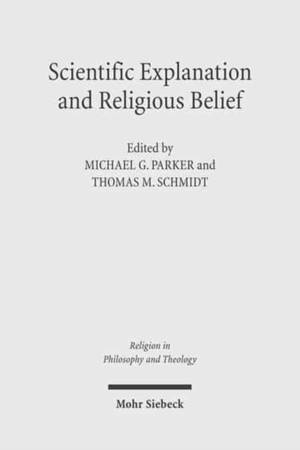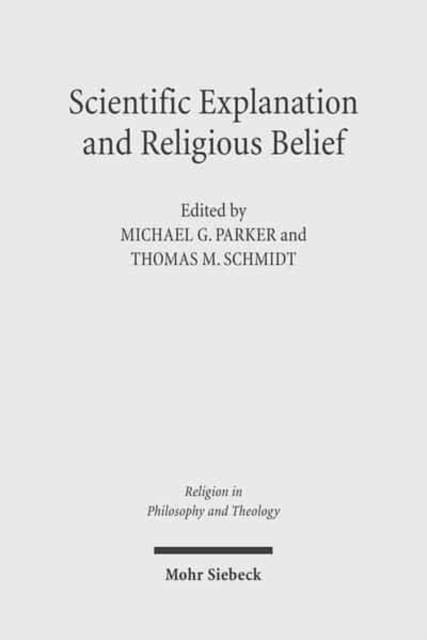
- Afhalen na 1 uur in een winkel met voorraad
- Gratis thuislevering in België vanaf € 30
- Ruim aanbod met 7 miljoen producten
- Afhalen na 1 uur in een winkel met voorraad
- Gratis thuislevering in België vanaf € 30
- Ruim aanbod met 7 miljoen producten
Zoeken
Scientific Explanation and Religious Belief
Science and Religion in Philosophical and Public Discourse
€ 41,45
+ 82 punten
Omschrijving
The science-and-religion dialogue has now become an established part of the wider cultural debate about the respective roles of science and religion within democratic societies. Typically, science has usually been identified with the sphere of reason, fact and explanation, whereas religion has been located within the realm of experience, value and interpretation. But religions also prescribe beliefs and support these with metaphysical accounts of the self, world and God. Such belief systems are both identity-forming and comprehensive. But the pluralism of world-views within modern liberal democracies and methodological naturalism in the sciences would seem to require believers to suspend these deeply-held beliefs when engaged in public discourse or scientific inquiry. This raises a number of interesting philosophical and practical issues which this volume seeks to address.As a reflection on the matrix of science, religion and politics, this volume constitutes a major contribution to an important, but neglected topic. This book will open up new lines of research and communication not only among philosophers, scientists and theologians, but for all those interested in the larger cultural conversation about the relationship between science and religion.
Specificaties
Betrokkenen
- Uitgeverij:
Inhoud
- Aantal bladzijden:
- 197
- Taal:
- Engels
- Reeks:
- Reeksnummer:
- nr. 17
Eigenschappen
- Productcode (EAN):
- 9783161487118
- Verschijningsdatum:
- 1/11/2005
- Uitvoering:
- Paperback
- Formaat:
- Trade paperback (VS)
- Afmetingen:
- 153 mm x 229 mm
- Gewicht:
- 366 g

Alleen bij Standaard Boekhandel
+ 82 punten op je klantenkaart van Standaard Boekhandel
Beoordelingen
We publiceren alleen reviews die voldoen aan de voorwaarden voor reviews. Bekijk onze voorwaarden voor reviews.










